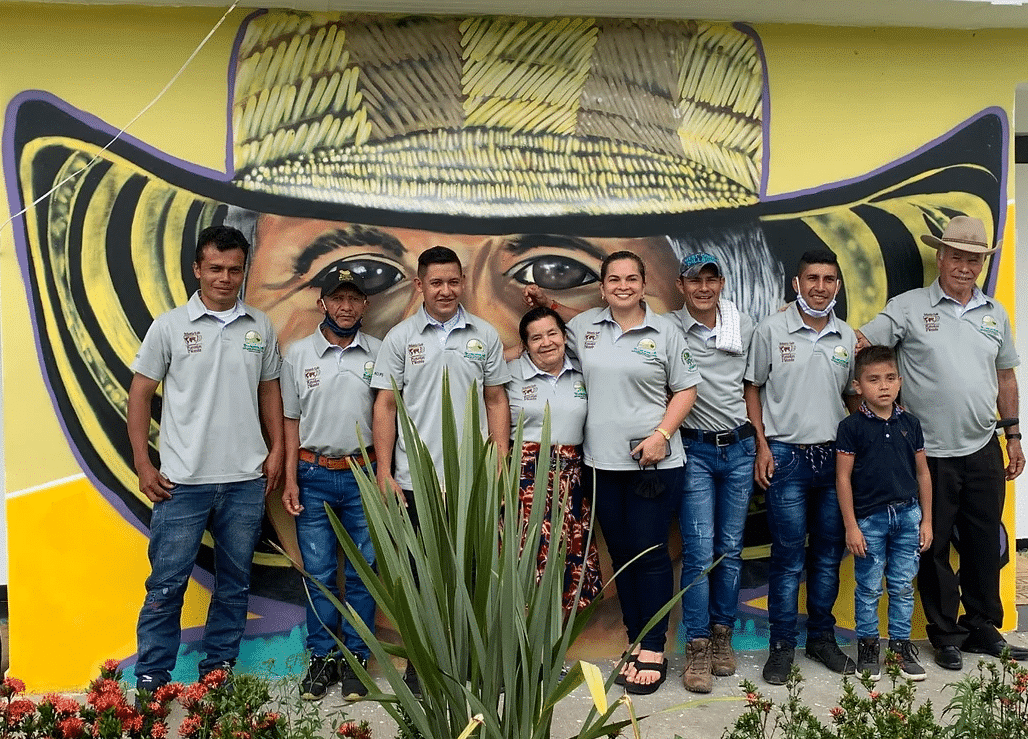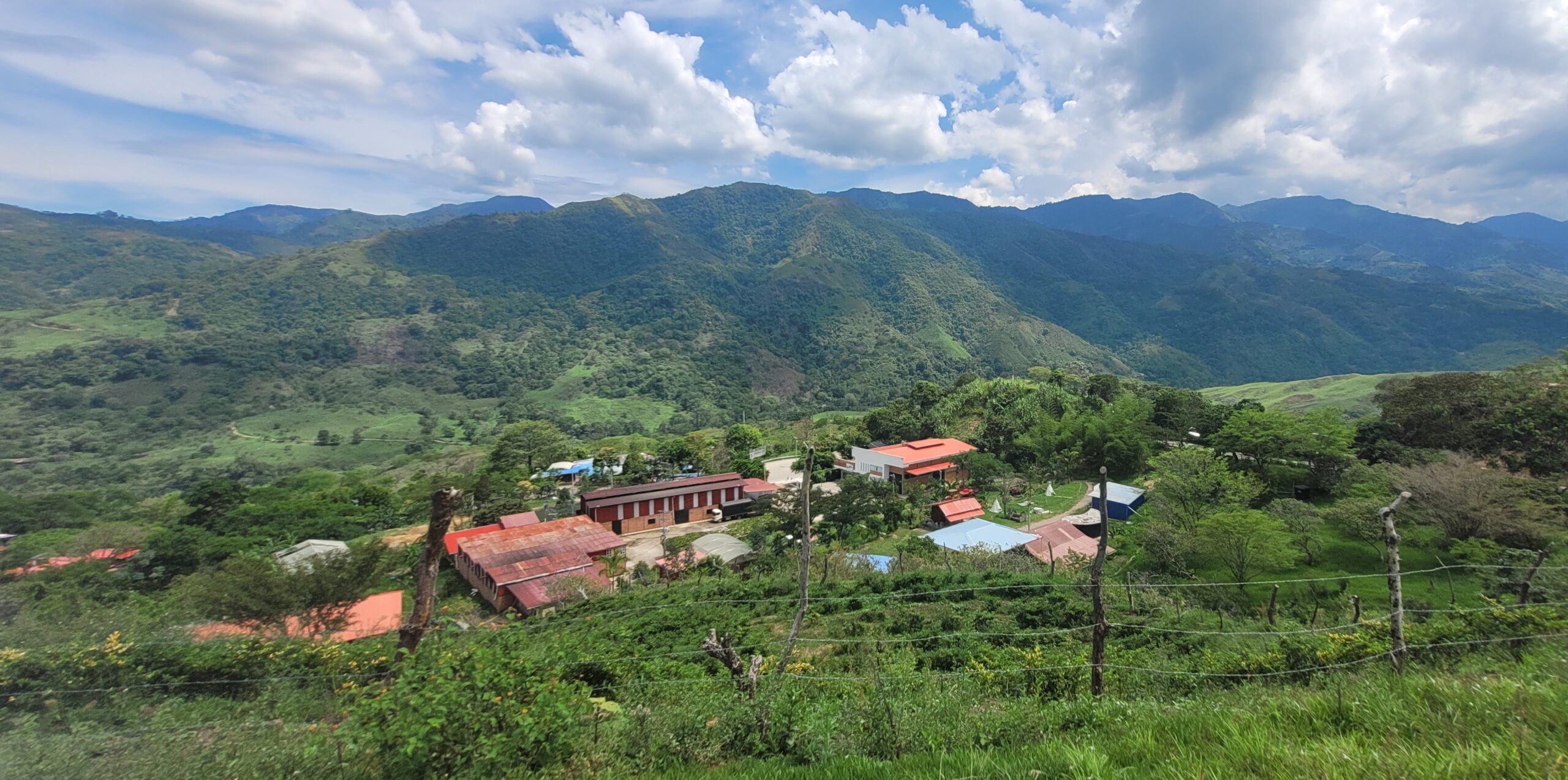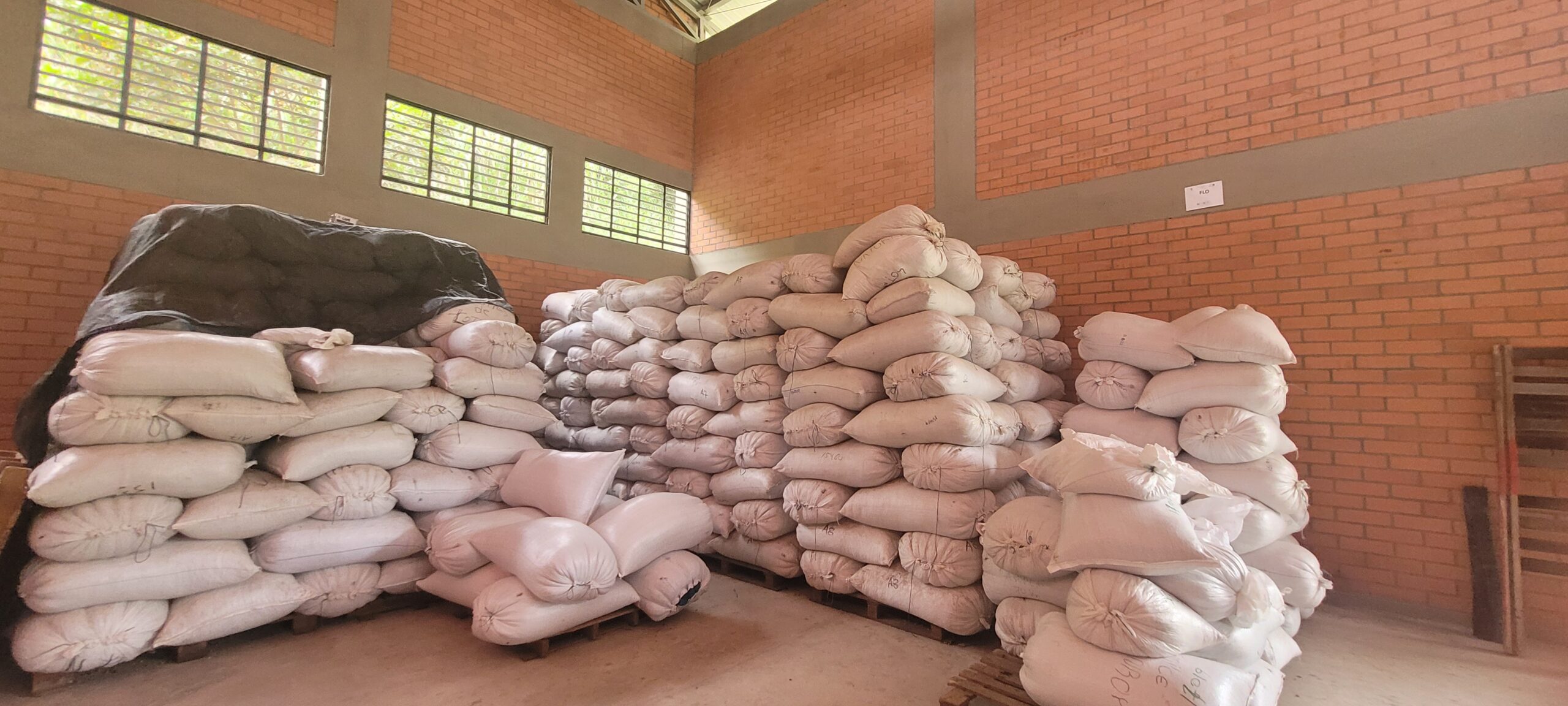
Root Capital has disbursed more than $1.96 billion in loans over the past 25 years to agricultural enterprises. Our success is grounded in an ethos of deeply listening to our clients and piloting innovative strategies to meet their evolving needs. In recent years, our clients have communicated a desire to do business in local currency and we’re pleased to announce a new initiative in response.
Borrowing from lenders in foreign currency can leave agricultural businesses exposed to risk as exchange rates fluctuate. By securing a loan in local currency, these small and growing businesses shift that risk to the financial institution, who is better able to withstand currency exchange fluctuations.
Additionally, local currency loans create significant impact at the individual level because businesses can put money in farmers’ hands far more quickly than when employers need to wait on currency exchange. International currency loans between countries can also be extremely complicated as there are many international fees and bureaucratic processes involved in the conversion. For our clients, borrowing money in foreign currency can significantly impact their bottom line.
Root Capital has made a few local currency loans since 2016, however earlier this year, we launched a more strategic local currency initiative in Colombia. The initiative fosters our clients’ financial resilience, which has a positive ripple effect on the farmers and communities in which they work. Local lending also strengthens the value of local currencies and supports the development of a competitive market economy while giving rural agricultural enterprises a competitive edge. We are excited to fill this critical gap in access to finance and we plan to be there for our clients every step of the way.
 ASOPEP facilities dot the landscape in the town of Planadas located southwest of the city of Cali, Colombia. Credit: Root Capital.
ASOPEP facilities dot the landscape in the town of Planadas located southwest of the city of Cali, Colombia. Credit: Root Capital.
Strict Standards for Colombian Coffee Growers
Colombia is the third largest coffee producer in the world. Root Capital partners with a diverse array of coffee business clients in Colombia, the majority of which are larger and more established. However, even many of the more established businesses do not want to export coffee themselves. Those that do often run into bureaucratic red tape and complications related to the transferring of funds in different currencies. Therefore, growers are encouraged to join the Colombian Coffee Federation/Federación Nacional de Cafeteros de Colombia (FNC), which handles exporting for its members.
The FNC is a private non-profit business organization founded in 1927 to promote the production and exportation of Colombian coffee. The FNC mandates that all Colombian coffee producers operate through cooperatives.
In order to be part of the FNC, coffee growers must meet the following requirements:
- Possess at least a half hectare of coffee planting area with a minimum of 1,500 coffee trees;
- Demonstrate some connection with the land; and
- Be registered in the Coffee Information System (SICA), which is the database system managed by the FNC.
Businesses that do not meet these strict requirements have trouble accessing the financing that those within the FNC receive. That’s where Root Capital comes in with our credit plus capacity model: we provide access to finance and resources to our clients, and partner with them to scale up their operations.
Our local currency lending initiative will better serve our clients’ financing needs in the Colombian peso, combat the challenges faced by our clients outside the FNC, and reach more businesses in Colombia. Expanding our impact like this is only possible with the generous support of the Rising Tide Foundation and our dedicated community of funders.

From left to right: An ASOPEP worker shows the “post-harvest” product from processing chilis as part of a crop diversification program; a view of the cooperative’s coffee drying beds from above; and the raised coffee drying beds. Photo credit: Root Capital.
Lending Colombian Pesos in Planadas
Our first Colombian pesos loan was disbursed to Asociación de Productores Ecológicos de Planadas (ASOPEP) in late January 2024. ASOPEP is located in the rural town of Planadas, southeast of the city of Cali. Due to its fortuitous location just north of the equator, ASOPEP’s farmers benefit from ideal coffee-growing weather. The high elevation combined with warm days and cool nights are optimal for coffee cultivation. The cooperative, founded in 2013, has been a Root Capital client since 2017. They’ve engaged in a variety of our capacity building services and training in areas ranging from financial planning and business management to climate resiliency to scale up their operations.
Despite being a relatively new organization, ASOPEP has emerged as a leader in the region. It is the largest coffee-growing cooperative in Tolima, and it is the only organization with complete coffee infrastructure to control processing, quality control, transportation, and commercialization. The general manager, Camilo Enciso Suarez, is a regional leader and advocate for all the organizations in the region of Planadas. While ASOPEP has an impressive history of production and commitment to social and environmental issues, they’ve encountered problems accessing financing, due to the history of violence that once rocked the Tolima region. But thanks to partners like the Rising Tide Foundation, Root Capital was able to meet ASOPEP’s financing needs by disbursing a working capital loan for $630 million Colombian pesos (equivalent to about $150K). Loans in local currency help the cooperative get money into the hands of farmers faster, protect ASOPEP from exchange rate fluctuations, and allow them to avoid onerous international fees involved with currency conversion.
 Parchment coffee awaits shipment to a processing plant at an ASOPEP warehouse in Planadas, Colombia. Credit: Root Capital.
Parchment coffee awaits shipment to a processing plant at an ASOPEP warehouse in Planadas, Colombia. Credit: Root Capital.
Providing our clients with loans in local currency offers several benefits, including:
- We’re better able to monitor the potential gains and losses in house so that our clients don’t have to; and
- We can withstand the instability in currency conversion better than our clients, who are more vulnerable to market volatility. This lets our clients benefit from competitive financing rates while also protecting them against foreign exchange rate risks.
Root Capital’s local currency loan initiative is designed to promote controlled exposure so that we can absorb foreign exchange losses on our own balance sheet. In other words, Root Capital assumes the risk so that our clients don’t have to. As a social impact investor, we are in a better position to manage foreign exchange risk than the small, growing agricultural organizations we partner with. Lending in local currency shields these agricultural enterprises from exchange rate volatility.
Where Are We Lending Locally Next?
Root Capital is excited to disburse more local currency loans to our Colombian clients this year. We plan on distributing at least three more loans in Colombian pesos to show how crucial local currency lending can be to our clients’ bottom line. While Root Capital is not the first institution to provide loans in local currency, we are unique because of the flexibility we provide to our clients with our general working capital loans-and we hope to encourage impact investing peers to begin lending in local currency alongside us.
Root Capital will continue to support our clients that export directly in U.S. dollars. However, this local lending initiative helps us provide access to finance to businesses that sell in the local market and lack sufficient access to capital (both financial and non-financial). Today, more than ever, Root Capital is ready to meet the financial needs of our clients-helping our clients expand their operations, create more jobs, and ultimately, improve the lives of the farmers they serve.

